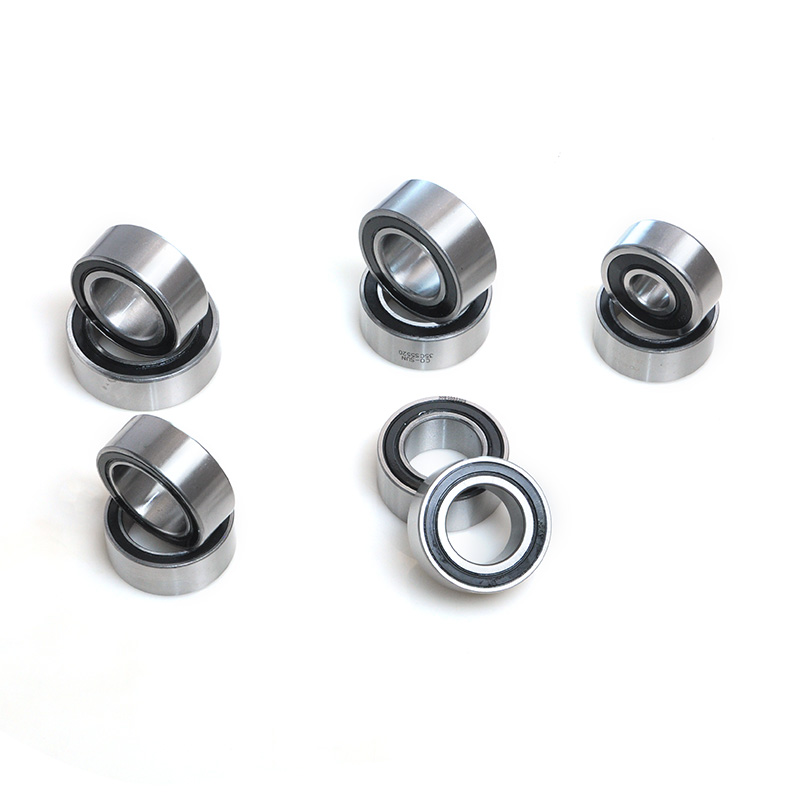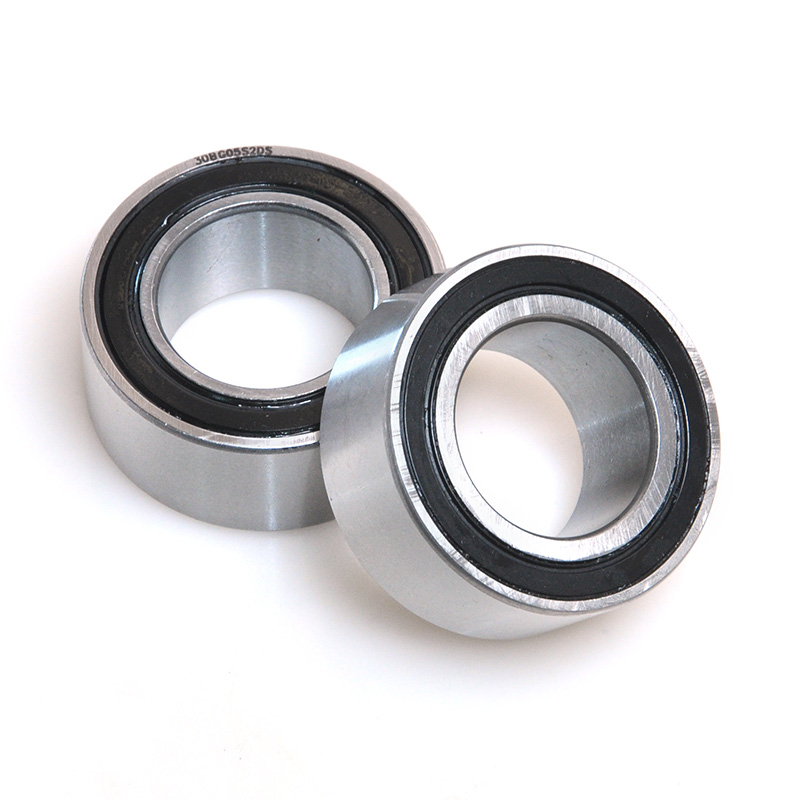When people discover a problem with their clutch release bearing, their first reaction is often, "Can I still manage to drive it for a while?" While the car might not be completely incapacitated yet, driving with a faulty clutch release bearing is like carrying a ticking time bomb. Here's an analysis of driving with ...
READ MORE-
-
Although clutch release bearings are designed to be durable, they are also quite delicate, and many everyday habits can unknowingly shorten their lifespan. Here are some of the main reasons for their damage: 1. The Habit of Keeping Your Foot on the Clutch Pedal This is the most common cause of bearing damage. Many dr...
READ MORE -
The cost of replacing a clutch release bearing (also commonly called a release bearing or thrust bearing) mainly consists of two parts, but the most painful part is often not the cost of the part itself, but the expensive labor costs. Here's a breakdown of the repair costs: 1. Cost of the part itself Bearing unit pri...
READ MORE
Air conditioner compressor bearings are critical components in HVAC systems, responsible for facilitating smooth rotation and reducing friction within the compressor unit. These bearings ensure efficient operation, minimize energy consumption, and contribute to the overall longevity of air conditioning systems.
Concept and Function
A compressor bearing is a mechanical element designed to support rotating shafts or axles in an air conditioner's compressor. Its primary functions include:
Load Support: Bearings distribute radial and axial loads generated during compressor operation, preventing excessive wear on moving parts.
Friction Reduction: By minimizing friction between rotating components, bearings enhance energy efficiency and reduce heat generation.
Precision Alignment: They maintain accurate alignment of the compressor's rotor and stator, ensuring optimal performance.
In air conditioning systems, compressor bearings operate under high-stress conditions, including temperature fluctuations, vibrational forces, and continuous rotation. Failure of these bearings can lead to compressor seizure, increased energy consumption, or system breakdown.
Types of Compressor Bearings
Compressor bearings are categorized based on design and application requirements. Common types include:
Ball Bearings: Utilize spherical rolling elements to handle moderate radial and axial loads. They are suitable for high-speed applications due to low friction coefficients.
Roller Bearings: Employ cylindrical or tapered rollers for higher load-carrying capacity. Tapered roller bearings are often used in compressors with combined radial and axial loads.
Sleeve Bearings: Also known as plain bearings, these consist of a sliding surface and are used in low-speed applications. They require lubrication for optimal performance.
Magnetic Bearings: Use electromagnetic forces to levitate the shaft, eliminating physical contact. These are found in advanced, oil-free compressor systems for reduced maintenance.
Each type is selected based on factors such as compressor design, operating speed, load requirements, and environmental conditions.
Applications in Air Conditioning Systems
Compressor bearings are integral to various air conditioner types, including residential, commercial, and industrial units. Key applications include:
Reciprocating Compressors: Commonly use ball or roller bearings to support the crankshaft and piston assembly.
Rotary Compressors: Often incorporate sleeve or ball bearings for smooth rotation of the vane or scroll mechanisms.
Scroll Compressors: Typically employ precision ball bearings to maintain orbital motion of the scroll elements.
Centrifugal Compressors: Utilize high-capacity roller or magnetic bearings in large-scale HVAC systems for enhanced durability.
In all cases, bearings must withstand contaminants, moisture, and thermal expansion, necessitating robust materials like steel, ceramic, or polymer composites.
Comparison of Bearing Types
The selection of compressor bearings involves trade-offs based on performance characteristics:
Durability: Roller bearings generally offer longer service life under heavy loads, while ball bearings excel in high-speed scenarios.
Maintenance Requirements: Sleeve bearings demand regular lubrication, whereas sealed ball bearings are often maintenance-free. Magnetic bearings require electronic control systems but have minimal wear.
Cost and Complexity: Ball bearings are cost-effective for standard applications, while magnetic bearings involve higher initial investment but lower long-term operational costs.
Noise and Vibration: Sleeve bearings tend to operate quietly, whereas roller bearings may generate more noise under load. Magnetic bearings provide virtually vibration-free operation.
Industry data indicates that bearing choice impacts compressor efficiency by up to 10-15%, emphasizing the importance of matching bearing type to specific system demands.
Frequently Asked Questions (FAQ)
What is the typical lifespan of a compressor bearing?
Lifespan varies by type and operating conditions. For instance, ball bearings in residential units may last 10-15 years with proper maintenance, while industrial bearings can exceed 20 years. Factors like lubrication, load, and temperature affect longevity.
How can bearing failure be detected?
Common signs include unusual noises (e.g., grinding or humming), increased energy consumption, overheating, or compressor tripping. Vibration analysis and thermal imaging are used in professional diagnostics.
Are there industry standards for compressor bearings?
Yes, organizations like ISO (International Organization for Standardization) and ABMA (American Bearing Manufacturers Association) set standards for dimensions, tolerances, and testing methods.
Can bearings be replaced individually?
In many cases, yes, but replacement must align with compressor specifications. Improper installation can lead to misalignment or premature failure.
How does lubrication affect bearing performance?
Lubrication reduces friction and wear. Over-lubrication can cause overheating, while under-lubrication may lead to seizure. Synthetic oils or greases are commonly used, with intervals specified by manufacturers.
Additional Considerations
Materials and Coatings: Bearings are often made from chrome steel, stainless steel, or ceramics, with coatings like PTFE for corrosion resistance.
Environmental Impact: Efficient bearings contribute to lower energy use, aligning with regulations such as ENERGY STAR criteria.
Innovations: Research focuses on smart bearings with embedded sensors for real-time monitoring, though these are not yet widespread in standard units.
As exemplified by Xinchang Heyang Auto Parts Co., Ltd., which specializes in manufacturing automotive clutch release bearings and over 300 types of non-standard bearings—mainly applied in Japanese, Korean, German, and American vehicles—the expertise in precision manufacturing translates well into demanding applications such as compressor bearings. Equipped with advanced machinery and a robust management system, the company maintains an annual production capacity of 1.2 million pieces, backed by a quality assurance standard that supports long-term performance. Guided by the principle of "Customer demand first" and attention to detail, Xinchang Heyang emphasizes reliability and durability in every product, making it a trusted partner in the global market, including the Middle East, Southeast Asia, South America, and Europe. Such dedication to quality ensures that critical components like compressor bearings meet the high standards required for modern HVAC systems.
 +86-13867573512
+86-13867573512





